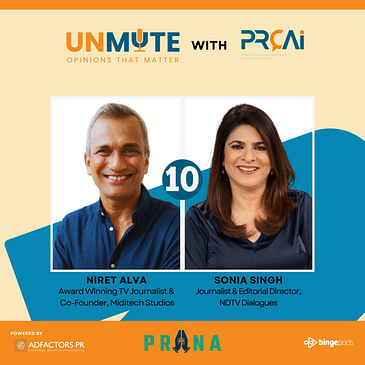In this episode, Niret Alva speaks with media veteran Sonia Singh. She shares her journey in journalism spanning 30 years and the changes she has seen during this period. From her inspiration to join the field, her experiences and challenges, to her view on artificial intelligence and journalism, Sonia gives viewers an insight into her professional life. She also discusses being a mother and her advocacy for women’s empowerment. Additionally, she highlights the importance of staying authentic as a journalist and counters the notion that present times are tough for Indian media.


